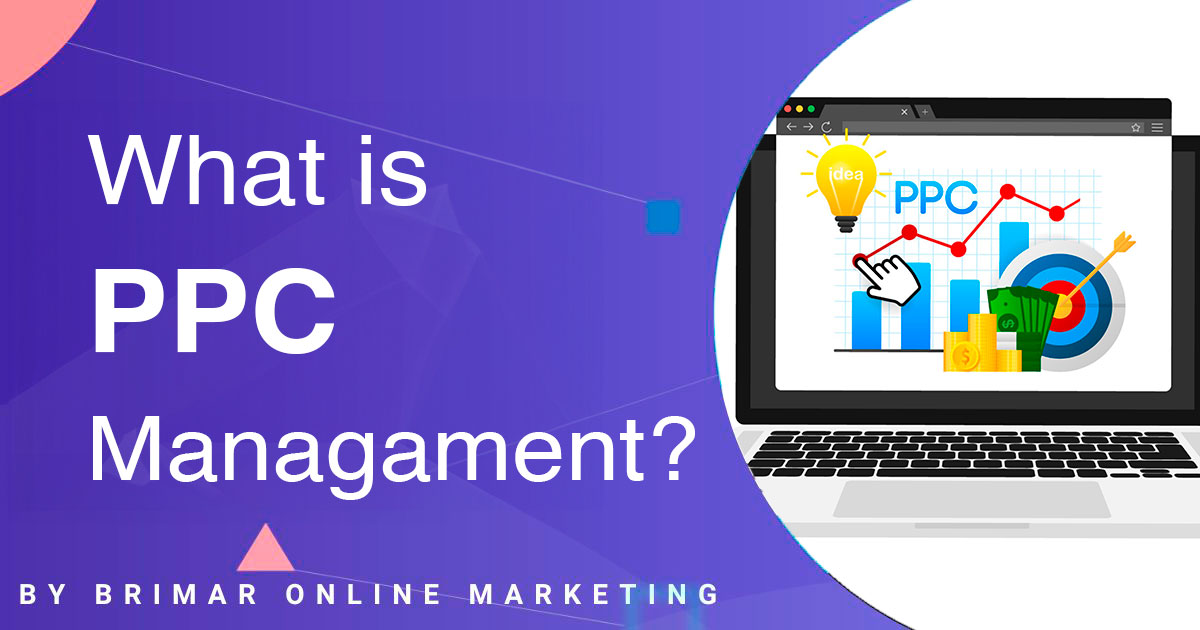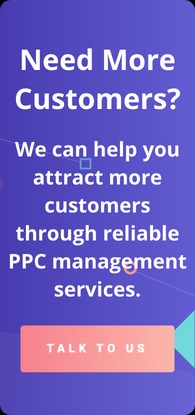
Have you ever wondered how certain ads seem to follow you around the internet, almost like they know exactly what you’re looking for?
That’s the magic of PPC advertising.
PPC, or Pay-Per-Click, is a powerful tool in digital marketing, allowing businesses to reach their target audience precisely when they’re searching for related products or services.
It’s not just about placing ads;
It’s about strategic placement, careful budgeting, and constant optimization.
That’s where PPC management comes in, ensuring your ads perform their best, giving you the most bang for your buck.
Understanding PPC Advertising
What is PPC?
PPC, or Pay-Per-Click, is an online advertising model where businesses pay a fee every time their ad is clicked.
Instead of relying solely on organic traffic, PPC allows you to buy visits to your website, ensuring that your ads are seen by a targeted audience actively searching for products or services like yours.
Think of it as a way to buy targeted traffic, making sure your ads appear at the right place and time.
How PPC Works: The Bidding Process and Ad Placements
PPC advertising operates through a bidding process.
When a user types a query into a search engine, an auction takes place behind the scenes.
Businesses place bids on keywords that closely match their products or services.
The bid amount, combined with the quality and relevance of the ad, determines the ad’s placement on the search results page.
Higher bids and more relevant ads get better placement, often at the top of the search results.
Types of PPC Ads: Search Ads, Display Ads, Social Media Ads, etc.
PPC ads come in various forms.
- Search ads appear at the top or bottom of search engine results pages when users look for specific keywords.
- Display ads are visually appealing banners or boxes that show up on websites within the Google Display Network.
- Social media ads target users on platforms like Facebook, Instagram, and LinkedIn, based on their interests, behaviors, and demographics.
Each type of ad serves a unique purpose and reaches potential customers in different ways.
Start Attracting Customers Through PPC Advertising Today!
We can help you create PPC campaigns that attract customers. Our services include bid management, keyword management, landing page performance reviews, and more.
The Basics of PPC Management
What is PPC Management?
PPC management involves overseeing and managing a company’s PPC ad spend.
It includes strategies and efforts to ensure that the money spent on PPC ads is utilized efficiently to drive targeted traffic, generate leads, and achieve the highest possible return on investment (ROI).
Key Components of PPC Management: Keyword Research, Ad Creation, Bidding Strategy, and Campaign Optimization
- Keyword Research: It involves finding terms that potential customers use when searching for products or services similar to what you offer.
- Ad Creation: Crafting compelling ad copy that attracts clicks. This includes writing headlines, descriptions, and choosing the right visuals for display ads.
- Bidding Strategy: Setting the right bids for your keywords to ensure your ads get the best possible placement without overspending.
- Campaign Optimization: Continuously monitoring and adjusting your ads to improve performance. This includes A/B testing different versions of ads, adjusting bids, and refining keywords.
The Role of a PPC Manager
A PPC manager is the wizard behind the curtain, ensuring everything runs smoothly.
They handle the research, create and manage ad campaigns, monitor performance, and tweak strategies as needed.
Their goal is to maximize ROI by ensuring every dollar spent on PPC ads brings in valuable traffic and conversions.
They stay updated with the latest trends, tools, and best practices to keep your campaigns competitive and effective.
Benefits of Effective PPC Management
Increased Online Visibility and Traffic
PPC management ensures your ads appear in front of potential customers right when they’re searching for related products or services.
This targeted visibility drives more qualified traffic to your website, increasing the chances of conversions and sales.
Cost-Effectiveness and ROI
With PPC, you’re charged only when someone interacts with your ad by clicking on it.
This makes PPC a budget-friendly advertising method since you pay solely for actual engagement.
Effective PPC management optimizes your ad spend, ensuring you get the best possible return on investment (ROI).
By continuously refining your campaigns, a good PPC manager can reduce costs and increase conversions.
Targeted Advertising and Audience Reach
PPC allows for precise targeting based on demographics, location, interests, and even past behaviors.
This ensures your ads reach the right audience at the right time, improving the likelihood of engagement and conversion.
Real-Time Performance Tracking and Analytics
One of the significant advantages of PPC is the ability to track performance in real-time.
PPC management involves analyzing data to understand which ads are working and which aren’t.
This real-time feedback allows for quick adjustments and continuous improvement, ensuring your campaigns are always optimized.
Steps to Successful PPC Management
1. Conducting Thorough Keyword Research
The foundation of any successful PPC campaign is comprehensive keyword research.
Identifying high-performing keywords that potential customers use is crucial.
Tools like Google Keyword Planner help find the most relevant and cost-effective keywords to target.
2. Crafting Compelling Ad Copy
Creating engaging and persuasive ad copy is an art.
Your ads need to stand out and compel users to click.
This involves writing attention-grabbing headlines, clear and concise descriptions, and including strong calls to action.
3. Setting Up and Managing Bidding Strategies
Choosing the right bidding strategy is essential for maximizing your budget.
Whether you opt for manual bidding or automated strategies like target CPA or ROAS, it’s important to set bids that balance cost and placement effectively.
Constant monitoring and adjustments ensure you’re not overspending while still maintaining competitive ad positions.
4. Monitoring and Optimizing Campaigns Regularly
PPC management is an ongoing process.
Regularly monitoring your campaigns helps identify what’s working and what’s not.
This includes analyzing click-through rates (CTR), conversion rates, and overall ROI.
Based on these insights, you can tweak your keywords, ad copy, and bids to improve performance.
5. Analyzing Data and Adjusting Strategies Based on Performance
Data analysis is at the heart of PPC management.
You can make informed decisions to adjust your strategies by examining metrics and performance data.
This could involve reallocating budget to higher-performing campaigns, pausing underperforming ads, or experimenting with new keywords and ad formats.
Common Challenges in PPC Management
Competitive Bidding and High CPCs
In competitive industries, the cost per click (CPC) can be high, making it challenging to maintain a profitable ROI.
Effective PPC management involves finding a balance between bid amounts and maintaining ad positions without overspending.
Click Fraud and Invalid Clicks
Click fraud, where competitors or bots click on your ads maliciously, can waste your budget.
Implementing click fraud protection measures and regularly monitoring for unusual activity is crucial.
Ad Fatigue and Declining Performance
Over time, your audience may become desensitized to your ads, leading to ad fatigue.
Rotating ad creatives and regularly updating your ads can help keep your campaigns fresh and engaging.
Keeping Up with Platform Updates and Changes
PPC platforms like Google Ads and Facebook Ads frequently update their algorithms and features.
Staying informed about these changes and adapting your strategies accordingly is essential for maintaining effective campaigns.
Tools and Resources for PPC Management
Using the right tools can significantly enhance your PPC management efforts.
Google Ads and Bing Ads are the primary platforms for running search ads.
Tools like SEMrush, Ahrefs, and Moz help with keyword research, competitive analysis, and tracking performance.
The digital marketing landscape is constantly evolving.
Staying updated with the latest trends, best practices, and platform updates is crucial for effective PPC management.
Subscribing to industry blogs, attending webinars, and participating in online forums can help you stay informed.
There are plenty of resources available to help you improve your PPC skills.
Online courses, certifications (like Google Ads and Bing Ads certifications), and industry conferences offer valuable insights and training.
Books, podcasts, and YouTube channels dedicated to PPC are also excellent resources for continuous learning.
Advanced Strategies for Effective PPC Management
Running a successful pay-per-click advertising campaign requires more than just setting up ads and hoping for clicks.
To achieve better results, businesses must implement a well-thought-out PPC strategy that considers factors like keyword analysis, ad placement, and budget control.
Whether you’re a small business or a large corporation, understanding the nuances of pay-per-click campaigns can significantly impact your conversion rate and website traffic.
Importance of Keyword Analysis and Negative Keywords
Choosing the right keywords is crucial for a high-performing PPC strategy.
Many business owners make the mistake of targeting broad, highly competitive terms with a high average CPC.
While these terms may generate traffic, they often lead to higher costs without guaranteeing conversions.
Instead, focusing on long-tail keywords can be a more cost-effective approach.
These keywords are more specific and tend to have lower competition, meaning you can achieve a higher quality score and pay a lower CPC.
Additionally, negative keywords can refine your targeting by preventing your ads from appearing for irrelevant search terms.
For instance, if you’re offering PPC management services, you may want to exclude searches like “free PPC tools” to avoid unqualified traffic.
Enhancing Ad Performance with Ad Extensions and Landing Page Optimization
A well-structured ad isn’t just about compelling copy, it also involves the proper ad placement and ad extensions.
Extensions can improve visibility and click-through rates by providing additional information, such as contact information, links to specific pages, or customer ratings.
Your landing page is equally important.
Even the best pay-per-click ads won’t yield results if your landing page isn’t optimized for conversions.
A strong landing page should be relevant to the ad, load quickly on desktop and mobile devices, and feature a clear call to action.
Many PPC experts recommend A/B testing different landing page designs to determine which generates the highest conversion rate.
The Role of a PPC Management Company
Many business owners find it challenging to manage pay-per-click campaigns effectively, especially with the constant changes in search engines and social media platforms.
That’s where hiring a PPC management agency can make a difference.
A PPC management firm offers expertise in budget control, keyword analysis, and campaign optimization, ensuring your business achieves the best results.
Why Work with a PPC Agency?
A professional PPC agency provides several advantages, including:
- Expertise in Multiple Platforms: A marketing agency specializing in PPC knows how to run campaigns on Google Ads, social media platforms, and platforms like Bing or LinkedIn.
- Proper PPC Management for Cost Efficiency: A PPC specialist ensures your PPC budget is allocated wisely, reducing lower costs while maintaining ad visibility.
- Access to Advanced PPC Management Software: A PPC management company utilizes tools that track campaign performance, analyze trends, and provide insights to improve ad budget allocation.
PPC Strategy for Small Businesses
Due to budget constraints, small businesses may find investing in pay-per-click management daunting.
However, even a limited PPC budget can lead to a high conversion rate with the right approach.
Some key strategies include:
- Focusing on Niche Keywords: Instead of bidding on high-cost, competitive terms, focus on long-tail keywords that attract a more targeted audience.
- Utilizing Smart Bidding Strategies: Features like target cost and automated bidding can help optimize spending for better results.
- Retargeting and Remarketing: Using Google display ads, businesses can re-engage visitors who previously interacted with their website, increasing chances of conversion.
- Time-Based Ad Scheduling: Analyzing the time of day when customers are most active can help optimize ad spend for the most effective ways to capture leads.
The Importance of Continuous Campaign Monitoring
Successful campaigns don’t just happen overnight, they require ongoing adjustments based on campaign performance.
Whether you manage your own ads or work with a PPC management agency, monitoring your Google Ads account regularly is essential.
- Ad Groups Optimization: Grouping ads by theme ensures relevance and can improve your quality score.
- A/B Testing: Running multiple versions of ads can help determine the most effective messaging.
- Day-to-Day Tasks: Regular analysis of click-through rates, search terms, and negative keywords can significantly affect ad performance.
Choosing Between In-House Management and a PPC Service Provider
Some companies prefer an in-house team to manage their company’s PPC campaigns, while others hire a PPC management firm.
Each approach has its pros and cons:
- In-House Team: More control over pay-per-click management, but may lack expertise in certain areas.
- PPC Management Services: Access to PPC experts and marketing managers who can deliver better results through data-driven strategies.
Working with a PPC management company is often the next step for businesses looking to scale their online presence.
The Future of PPC Marketing
With the rise of mobile devices and evolving trends in search engine optimization, the world of PPC marketing is constantly changing.
As a marketing strategy, it remains one of the most effective ways to drive traffic and increase brand awareness.
Emerging trends include:
- AI-Driven PPC Management Software: Automation and machine learning are making it easier to optimize campaigns with minimal manual intervention.
- Voice Search and PPC: As voice search becomes more popular, adapting pay-per-click advertising for conversational queries will be essential.
- Integrated Social PPC: With platforms like Instagram and LinkedIn offering advanced ad targeting, businesses can leverage social media platforms alongside search engines for broader reach.
Take Your PPC Advertising Campaign to the Next Level
If you want the best results from your pay-per-click advertising, partnering with a trusted PPC agency is the most brilliant move.
A PPC management company can help optimize your Google Ads account, improve ad placement, and ensure proper PPC campaign management to maximize your return on investment.
Whether you’re a startup, a small business, or an established brand, professional PPC management services can help you build a strong online presence and reach the right people at the right time.
Ready to take the next step in your PPC strategy?
Final Thoughts
PPC management is a vital aspect of digital marketing that can significantly impact your business’s online success.
By investing in professional PPC management, you ensure your ads are optimized, your budget is well-spent, and your campaigns achieve the best possible results.
At Brimar Online Marketing, we’re here to help you navigate the complexities of PPC and achieve your marketing goals.
Ready to take your business to the next level?
Let our experts manage your PPC efforts, so you can focus on what you do best—running your business.
Contact us today and see the difference professional PPC management can make.
Our PPC Services Have Helped Our Clients Increase Their Revenue!
“I highly recommend Brimar if your looking to grow your online business. You will be satisfied with the high level of expertise and high quality of services. It has helped my business grow by leaps and bounds.”
CEO


